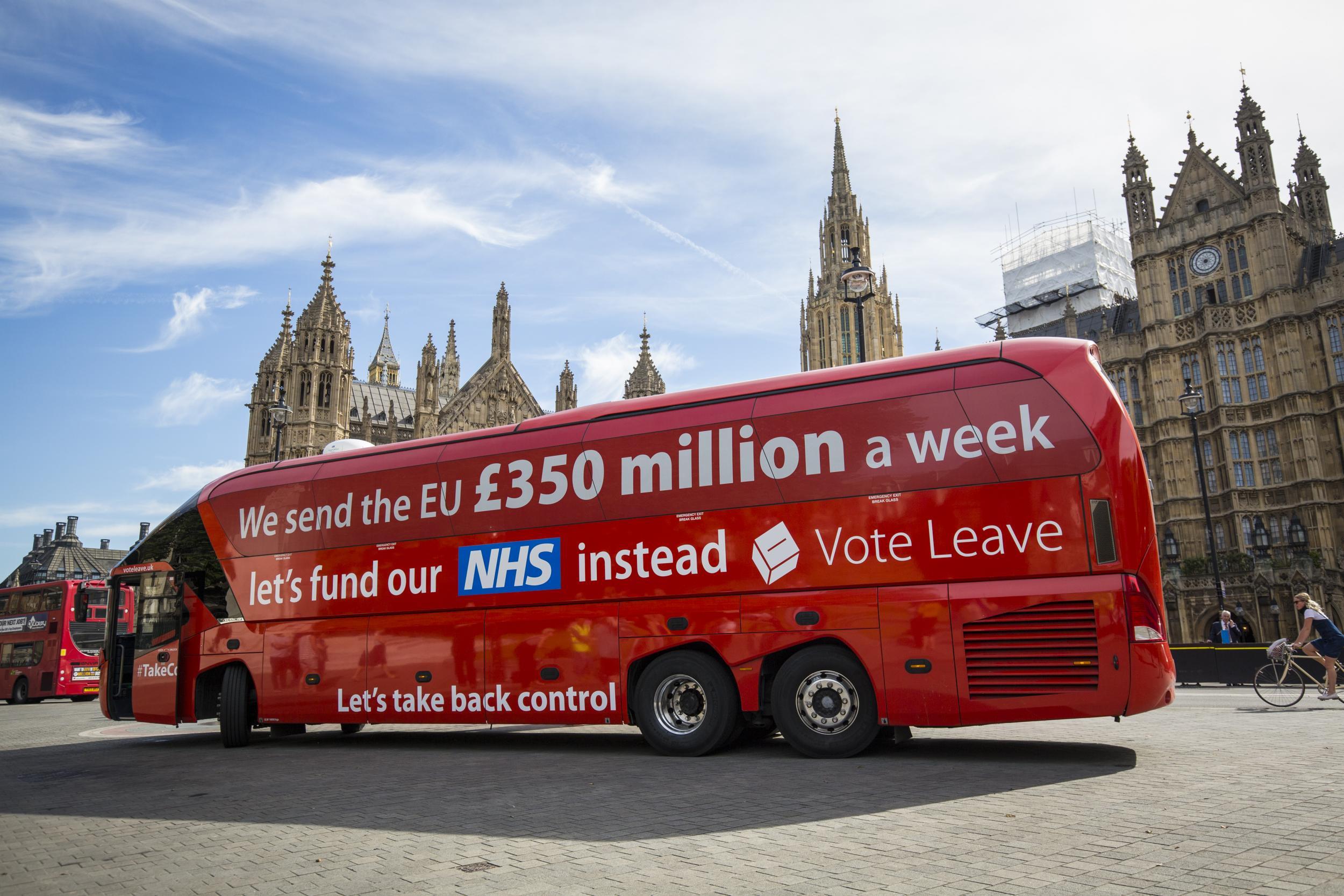UK is paying the EU less than half the sum claimed by Brexit campaigners, reveal new figures
UK’s net contribution falls to its lowest level for five years – about £156m a week

Britain is paying the European Union less than half the sum claimed by Brexit campaigners, new official figures have revealed.
The UK’s net contribution has fallen to its lowest level for five years, at just £8.1bn in 2016-17 – or about £156m a week.
The sum is under half the £350m-a-week claimed by Brexiteers during the EU referendum campaign, which they promised to divert to the cash-strapped NHS.
Vote Leave, the official Brexit campaign, was widely criticised for printing a slogan on the side of its battle bus that said: “We send the EU £350m a week.”
Boris Johnson and other key figures were photographed alongside the bus, promising the health service the extra money – but the pledge was immediately dumped when Theresa May took over in Downing Street.
Furthermore, the £8.1bn sum for the annual bill would fall further if the Treasury figures included payments from Brussels into private-sector organisations in the UK.
The Horizon 2020 scientific research programme and funding for education, training, youth and sport through the Erasmus+ scheme together receive about £1.5bn annually.
Tom Brake, the Liberal Democrat Brexit spokesman, said: “The Leave campaign promised £350m extra a week for the NHS.
“Now, not only have the Brexiteers failed to stump up the extra cash, but it turns out our actual contribution to the EU is less than half what they claimed.
“This pales in comparison to the benefits we get and the damage to our economy that would be caused by leaving the single market.”
It is the first time the UK’s payments have been estimated for the period that includes the vote to leave the EU on 23 June last year.
The figure of £8.1bn for 2016-17 is the lowest since 2011-12 and is down just over a quarter on the figure for 2015-16, when adjusted for inflation.
The UK’s gross contribution to the EU budget in the last financial year, before the application of the rebate, totalled £16.9bn or around £325m a week.
But, as the UK Statistics Authority pointed out during the referendum campaign, the Treasury pays the UK’s contributions to the EU after deducting the value of the rebate.
That rebate was worth £4.8bn in 2016-17. Subtracting this from the gross contribution gives a figure of £12.2bn.
However, the EU’s payments to the UK public sector have also been deducted to give the final figure of £8.1bn, or about £156m a week.
The controversy over payments will play a crucial part in Brexit negotiations over the size of the UK’s so-called divorce bill for leaving the EU.
Downing Street has rejected speculation Theresa May would be prepared to pay a £36bn bill in order to strike a trade deal with Brussels, under pressure from Eurosceptic backbenchers.
The UK Statistics Authority described the £350m-a-week Brexiteer claim as blatantly misleading and the respected Institute for Fiscal Studies branded it absurd.
Join our commenting forum
Join thought-provoking conversations, follow other Independent readers and see their replies
Comments